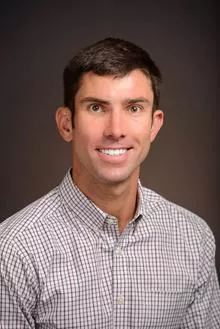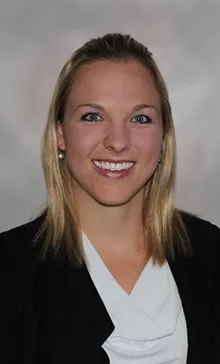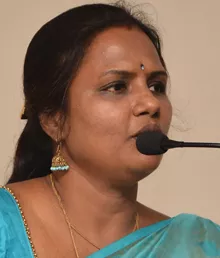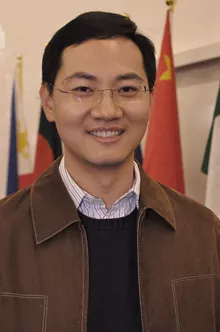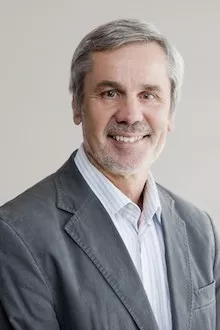The HEAT is on!
FINDING SOLUTIONS FOR HEAT IMPACTS ON SOCIETY DUE TO CLIMATE CHANGE
Venue: Pufendorf IAS and Palaestra
Program
Pufendorf HEAT project walk and conference took place on 20th of May 2015. The presentations are now available - and have been linked too in the program below. The walk was filmed and "HEAT WALK - the Movie" will be posted here in September 2015.
Heat Walk ( note: discussions in Swedish)
8.30
Breakfast at the Pufendorf Institute
9.00
Heat Walk – Experience heat - 6 stops around Lund
• Work in heat- IKDC heat lab
• Health Aspects of heat
• Vulnerable groups - Hospital
• Heat and Buildings
• Green Spaces and heat
• Urban planning principles
12.00
Lunch at the Pufendorf Institute
Afternoon Heat Conference at Palaestra
13.15
Introduction + Presentation of the Pufendorf Heat Project Discussant: Johanna Alkan Olsson HEAT theme coordinator Moderator: Sune Sunesson, director Pufendorf IAS
13.45
Biometerological perspectives: David Hondula, Assistant Research Professor, Arizona State University and Jennifer Vanos, Assistant Professor, Texas Tech University, USA
14.15
Increasing Heat in India, Occupational Health perspectives: Vidyha Venugopal, Professor, Sri Ramachandra University, Chennai, India.
14.45
Coffee
15.00
Increasing Heat in China, Mitigation and Adaptation strategies: Cunrui Huang, Professor, Sun-Yat-sen University, China
15.30
Hotter, longer, more often: How climate change is already increasing the intensity and frequency of heatwaves: Will Steffen, Professor, Australia National University
heat_lund_may_2015_will_steffen.pptx
16.00
Final Discussion
Invited speakers:
David Hondula is Assistant Research Professor at Arizona State University in the United States with appointments in the Center for Policy Informatics, School of Geographical Sciences and Urban Planning, and Global Institute of Sustainability. His research examines the societal impacts of weather and climate with an emphasis on extreme weather and health. Recent projects include statistical analysis of health and environmental data sets to improve understanding of the impact of high temperatures on human morbidity and mortality, especially within urban areas. Hondula is also engaged in quantitative and qualitative field work to learn how individuals experience and cope with extreme heat in the Phoenix metropolitan area. Developing research considers how to facilitate effective governance and communication strategies for climate adaptation in partnership with local and state health agencies and the National Weather Service. These efforts are motivated by the overarching goal of reducing unnecessary weather-related illnesses and deaths through effective mitigation and intervention strategies.
Prior to joining ASU, Hondula received his Ph.D. in Environmental Sciences at the University of Virginia and was a visiting scholar at Umeå University in Umeå, Sweden and Queensland University of Technology in Brisbane, Australia. Hondula currently serves as a Director for the Association of American Geographers’ Climate Specialty Group, and is also member of the American Meteorological Society (AMS), International Association for Urban Climate (IAUC), International Society of Biometeorology (ISB), and International Society for Environmental Epidemiology (ISEE).
Jennifer Vanos is Assistant Professor in the Atmospheric Sciences Group within the Geosciences Department at Texas Tech University in the United States. She also works within the interdisciplinary Climate Science Center at Texas Tech. Jennifer specializes in the study of human biometeorology and bioclimatology, examining the separate and combined impacts of weather and climate on human health. Areas of current research include: extreme heat and air pollution, micrometeorological instrumentation, urban heat and cooling islands, climate-conscious urban design and sustainability, heat vulnerability of subpopulations (e.g., children), and understanding the broad impacts of a changing change to human health. Jennifer is also focused on human adaptation and how to best cope with negative health impacts due our changing climate and urban growth/development. Select current projects involve multi-scalar analyses in urban parks and playgrounds, high-spatiotemporal resolution assessments of urban heat islands under various air masses, and new spatially innovative methods for air pollution monitoring using portable and mobile sensors. Much of the research by Dr. Vanos and colleagues complete is dedicated to discovering and effectively communicating the realities of a changing climate, particularly to those vulnerable individuals affected the most.
Vidyha Venugopal obtained her doctoral degree in Environmental Chemistry from the National Environmental Engineering Research Institute (NEERI) and did her post-doctoral research at Central Queensland University, Australia. She was awarded the prestigious British Cheverning Scholarship for Young Environmental Managers in 2000 and studied Environmental Business Management at University of Manchester, UK. She has been trained in Umea University, Sweden and University of Heidelberg, Germany on “Climate change and Health” and currently honored with a visiting faculty status at the University of Heidelberg, Germany and teaches Climate change and Health to international students. She also is an approved tutor/trainer by the British Occupational Hygiene Society and National Examination Board of Occupational Safety and Health (NEBOSH), UK. She worked at Johnson & Johnson at Canada as a Research Scientist for 9 years in Canada. Her fields of specialization include Environmental Analytical Chemistry, Project Management and Industrial Hygiene, Occupational Health & Safety. Her responsibilities as a Professor at EHE include, teaching Environmental and Occupational Health, Industrial Hygiene and Safety, and other short-term training programs conducted by the department on Occupational & Environmental Health & Safety. She has represented India in ILO, Italy in 2013 for Occupational Health & Safety training in India. A BOHS certified Occupational Hygienist; she heads the Industrial Hygiene services group at SRU and serves as a consultant for about 150 industries in India. She has 3 funded research projects in the broad area of “Climate Change, Heat Stress and Health” with Sweden, Department of Science and Technology and Indian Council of Medical Research.
Cunrui Huang is Professor in the School of Public Health at Sun Yat-sen University in China. He obtained his undergraduate degree in Medicine from Anhui Medical University, a Master of Medicine from Sun Yat-sen University in China, a M.S. in Public Health from Griffith University, and a Ph.D. in Epidemiology from Queensland University of Technology in Australia. In 2001, he was appointed as an Associate Lecturer in the School of Public Health at Sun Yat-sen University, where he devoted himself to both teaching and research, especially pioneering research on the role of private health sector and community health services in China. During 2006–2007, he was a Visiting Research Fellow in the School of Public Policy and Management at Tsinghua University in Beijing, China. In 2012, he was appointed as a Research Fellow at Griffith University working on health policy and environmental epidemiology. In 2014, he returned back to China and became a full professor. Dr. Huang’s research focuses on the health impacts of climate change, especially on more vulnerable populations, and adaptation planning to improve health outcomes. He has been conducting research on heat-related mortality, years of life lost due to extreme temperatures, understanding sources of vulnerability, and climate-health preparedness strategies. He has published over 50 scientific journal articles and his work has been featured in The Australian, Wired magazine and many other media outlets.
Will Steffen has his primary position as Executive Director of the Climate Change Institute at the Australian National University (ANU) in Canberra. He is also science adviser to the Department of Climate Change, Australian Government and a Senior Research Fellow at the Stockholm Resilience Centre, as well as an Earth System Governance Lead Faculty member. In 1990, Dr. Steffen took up the position of Executive Officer for the Global Change and Terrestrial Ecosystems project of the International Geosphere-Biosphere Programme (IGBP). From 1998 to 2004 he served as Executive Director of IGBP and was based in Stockholm. Dr. Steffen returned to Canberra in mid-2004 and took up a Visiting Fellowship with the Bureau of Rural Sciences, Department of Agriculture, Fisheries and Forestry, Australian Government. A year later he joined the ANU and was the foundation director of the Fenner School of Environment and Society before moving to his current position with the Climate Change Institute. His research interests span a broad range within the field of Earth System science, with a special emphasis on terrestrial ecosystem interactions with global change, the global carbon cycle, incorporation of human processes in Earth System modelling and analysis, and sustainability and the Earth System. His work usually takes a synthesis/integration approach to complex questions about the evolution of the human-environment relationship, often working with teams of researchers across ANU and Australia, and internationally. Dr. Steffen has given numerous presentations on climate change, global change and Earth System science to political and business leaders as well as community groups.He has also served on several advisory boards and review panels. Dr Steffen holds an Honorary Professorship in the Department of Geography and Geology, Copenhagen University.


